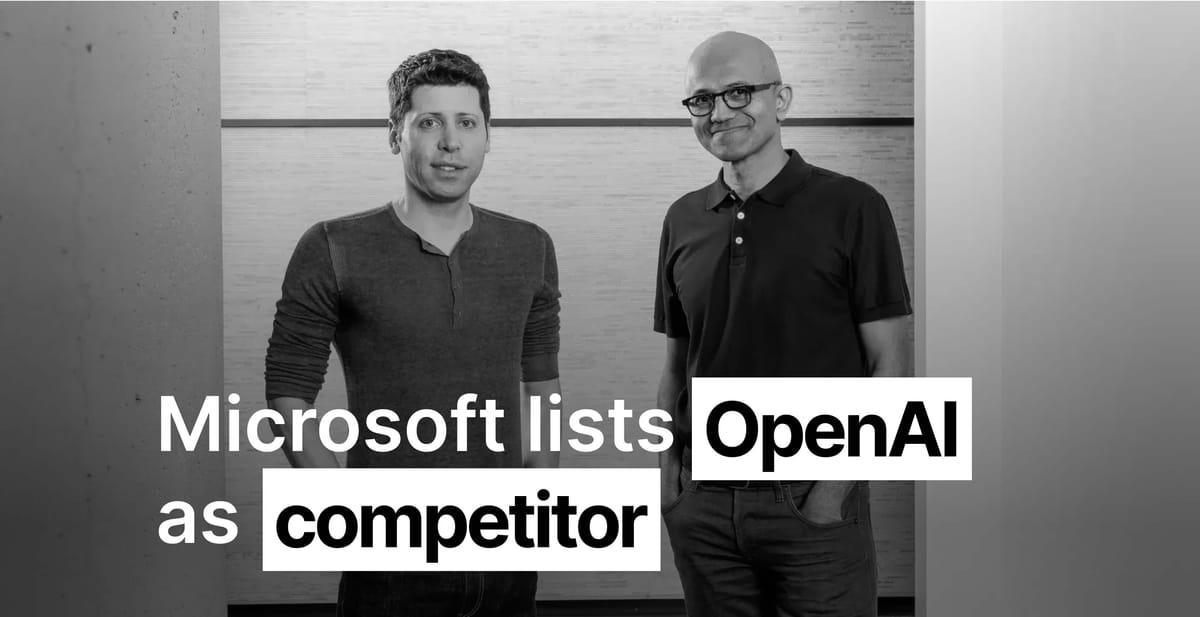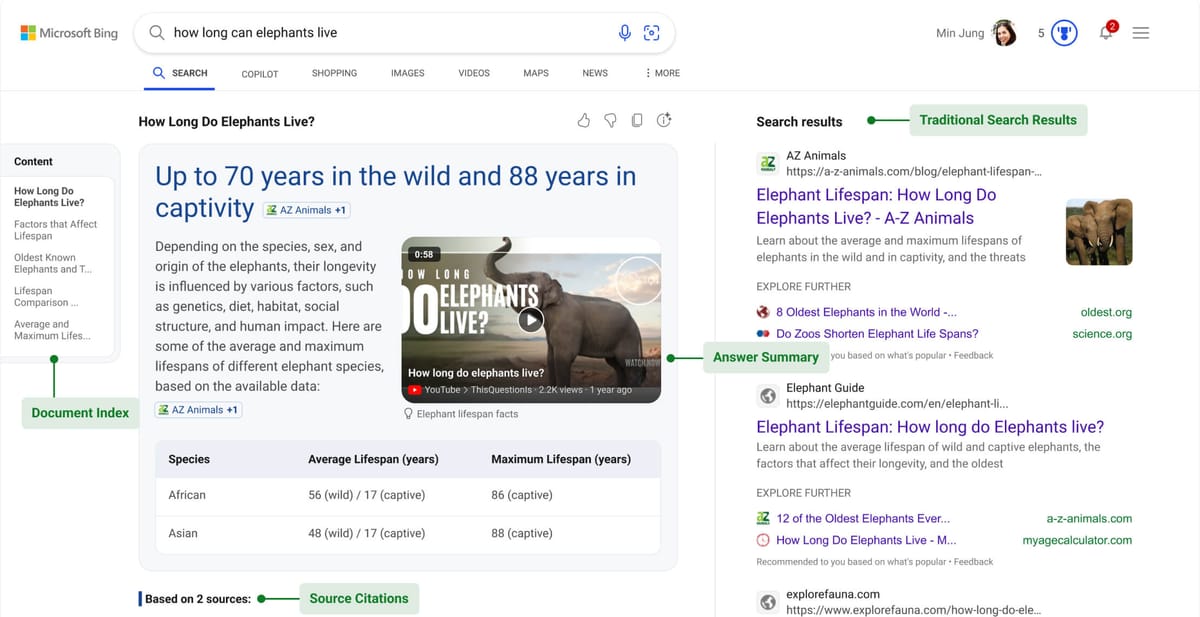
In a recent SEC filing, Microsoft has officially listed OpenAI as a competitor in AI and search, despite their $13 billion investment in the ChatGPT creator. This move, however, appears to be more about regulatory strategy than a fundamental shift in their relationship.
Our Search and news advertising business competes with Google, OpenAI, and a wide array of websites, social platforms like Meta, and portals that provide content and online offerings to end users.
The filing specifically mentions OpenAI alongside Google as rivals in search, coinciding with OpenAI's launch of SearchGPT. But this competitive positioning doesn't tell the whole story.

Microsoft and OpenAI are both gunning for Google's dominant share of the search market, albeit with different approaches. Microsoft recently unveiled Bing's new generative search capabilities, which combine large and small language models with traditional search results. This evolution of conventional search contrasts with OpenAI's strategy of integrating search functions directly into ChatGPT.

By listing OpenAI as a competitor, Microsoft is likely aiming to preempt antitrust concerns. The tech giant is walking a fine line, maintaining its lucrative partnership with OpenAI while developing its own AI capabilities. This includes the recent establishment of a new AI division led by former Inflection AI co-founders.
The Microsoft-OpenAI dynamic showcases the complex interplay of collaboration and competition in the AI era. As both companies push the boundaries of AI-powered search, their strategies may diverge, but make no mistake, their shared goal and mission with AI dominance remains aligned.


